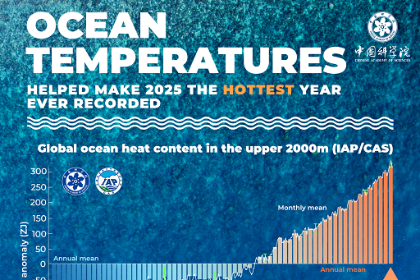We need user-friendly equipment to promote the use of clean energy


Editor's Note: Energy drives economic development and helps improve people's lives, but extracting fossil fuels and generating electricity also cause environmental pollution. So China has pledged to phase out coal-fired power plants while increasing the use of clean energy, writes a veteran journalist with China Daily in the third of a series of commentaries.
China has pledged that its carbon dioxide emissions will peak before 2030 and it will achieve carbon neutrality before 2060. This is a difficult pledge to fulfill, especially because the national campaign to eradicate poverty achieved initial success only last year after decades of efforts. So China needs to take stricter and more effective measures to reduce the use of fossil fuels while promoting clean energy such as hydropower, and wind, solar and nuclear power.
Official data show that by 2019, clean energy accounted for 23.4 percent of the total energy consumption, up 8.9 percentage points from 2012.
Yet as a common consumer, I don't know whether the electricity I use is produced using coal or non-fossil fuel. I only know that I have been contributing to the global carbon-reducing efforts by using solar water heaters for a dozen years or so. And my experience tells me that, while developing clean energy, it is also important to make it user-friendly.
I live on the top floor of a 14-storey apartment building, so I installed a solar water heater panel on the terrace many years ago without realizing it was the start of my problems. While persuading me to buy their solar water heater, the salesmen also promised efficient and reliable after-sales service. Seeing that I was still skeptical about their product, they stressed that by using it, I would also help reduce global warming.
But problems emerged immediately after I got the solar water heater installed. On cloudy days, the water was not hot enough to take a shower, the water flow was always weak, and the temperature sensor often stopped working. And during very cold winter spells, water in the pipes froze and sometimes the pipes cracked. So several times a year, I had to contact the company's after-sales section to get the problems solved, and ended up paying 200-400 yuan ($31-62) every time-more than what I would have had to pay for the electricity needed to run an electric water heater.
After my first solar water heater broke down three years ago, the salesman who came to dismantle it, again successfully persuaded me to buy a new one, promising that the new-generation heater would not have the old problems. But the new one was no different. Fed up with the problems, I have bought an electric water heater.
Although my experience with a solar water heater has not been pleasant, it can still be an isolated case. But it should serve as a warning to the manufacturers and supervisors if they want to increase their market shares.
Solar water heaters appeared in China 20 years ago and have been well accepted by people nationwide with their sales increasing by double digits every year. It is more popular in rural areas because almost all rural households can install them on their roof and the price, between 2,000 yuan and 4,000 yuan, is affordable for the better-off farmers.
In some areas, such as Rizhao in Shandong province, 90 percent of the families have solar water heaters, which not only provide villagers with hot water but also help them reduce their electricity consumption, which in turn reduces air pollution.
In cities, most residents live in apartment buildings and, for reasons of security and/or beautification, not permitted to install solar equipment on the terrace. Pilot programs have required real estate developers to make provisions for solar water heater panels on the terrace right from the designing stage of the projects. But the response has been lukewarm because that would raise the housing price and cost of management even after local governments provide subsidies.
Solar water heaters could play a key role in our drive to reduce emissions, because there are more than 430 million families in China. But specific central and regional laws and regulations are urgently needed to make solar water heating systems part of the housing projects, and the authorities should tighten supervision to ensure the solar equipment are not only eco-friendly but also user-friendly.
The author is former deputy editor-in-chief of China Daily.
kangbing@chinadaily.com.cn

































